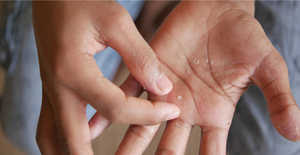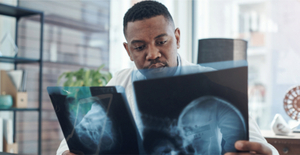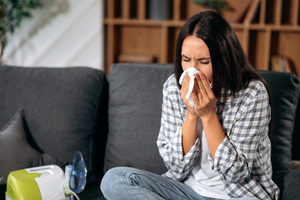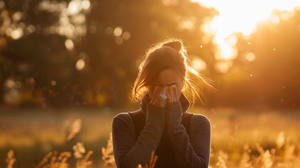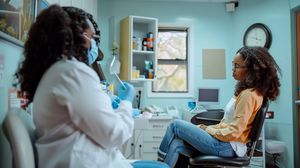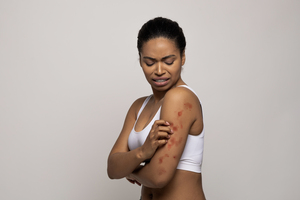Key points
- Hosts should communicate their COVID-related expectations to guests in advance to ensure a safe and enjoyable Thanksgiving.
- Mask wearing, especially in mixed groups, is advised and should be respected by all guests.
- Hosts can ask guests about their vaccination status for the safety and comfort of all attendees.
- COVID testing prior to the event is recommended, and guests should inform hosts of their results.
- Hosts are encouraged to implement safety measures such as outdoor gatherings, proper ventilation, and provision of hand sanitizers. They should also clean their houses thoroughly, paying attention to communal areas and high-contact points.
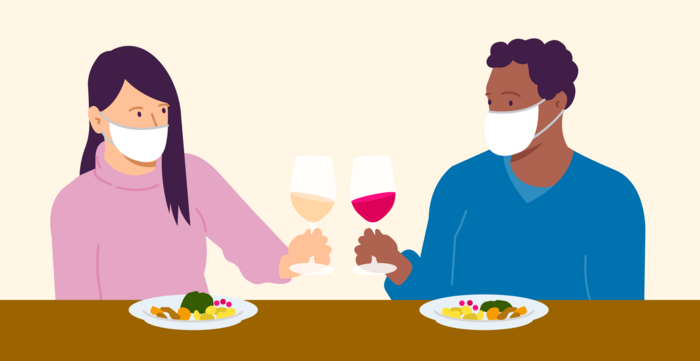
My House, My Rules
It is essential that hosts adhere to official guidance and CDC recommendations to ensure everyone’s wellbeing. But it’s likely that, even within a close family group, people will have varying stances on masks, COVID vaccines, and safety protocols. This is the time for hosts to step-up and communicate their holiday house rules and behavioral expectations.
Tell guests well in advance what will be expected – for example, testing before they come, disclosing vaccine status, or sometimes wearing a mask. Inflicting last-minute rules or quizzing guests as they arrive may cause upset or irritation, as well as plenty of pre-dinner tension.
Consistency is also key, so avoid he-said, she-said confusion by sharing the same information with all guests. A group email might be easiest; keep the tone light and friendly (it’s supposed to be a fun celebration, after all) but be clear on what is expected. Good communication will help put people at ease, and give them time to reflect and prepare.
Etiquette tip:
Hosts should reassure guests that the intention is to keep everyone safe; guests should be thankful for the consideration and clarity of guidance.
Masking Manners
Some people feel relaxed not wearing a mask, whereas others wouldn’t consider stepping out without one. The CDC recommends that masks are worn inside if you are mixing with anyone who is unvaccinated or at higher risk of infection. So, if you are a mixed group (e.g. children, adults, elderly), a mask-on policy could be a safe approach for everyone.
It may be easiest to think of it as a modern dress code: guests wouldn’t want to turn up to a special occasion under-dressed or wearing the wrong thing, so they shouldn’t turn up to celebrate Thanksgiving without a mask if asked to wear one.
During the day, everyone should use their judgment and be practical. The CDC recommends wearing a mask when moving about, preparing food, or in very close proximity to others; the unvaccinated should be particularly rigorous with their mask-wearing. Take off your mask to drink or eat – it really is a matter of wearing it to the dinner table and then taking it off once seated (and putting it away or in a pocket as masks are never placed on the table).
Guests who usually adopt a mask-free approach to life should respect the host’s request. They are in someone else’s house, and only for a few hours, so the well-mannered thing to do is to stick to the rules and mask-up, rather than comment or criticise. Be sure, too, to wear your mask properly over your nose and mouth; masks worn as chin-straps are no use to anyone.
Etiquette tip:
Have a box of paper masks to hand out to guests who may have forgotten theirs.
Sharing the Status Quo
While official CDC guidance encourages everyone to be vaccinated, it is possible that Thanksgiving may draw together a mix of vaccinated and unvaccinated people. Not knowing everyone’s shot status may create discomfort and worry, and guests should have the right to make a well-informed decision before they accept an invitation.
Once again, hosts must take the lead. While they cannot insist that guests have their COVID shot (it is, after all, freedom of choice), it is acceptable to take a stance on whether or not unvaccinated guests will be invited to the event. If unvaccinated guests will be in attendance, it is perfectly acceptable to ask guests their vaccination status if it’s applicable. This should be handled carefully: reiterate that it is for the personal safety and comfort levels of all guests, not for nosey, personal judgments.
If the event will be open to a mix of vaccinated/unvaccinated guests, hosts can give the guests a general overview without naming names or, worse, a vaccinated host naming-and-shaming unvaccinated invitees. They can simply let guests know that everyone coming is fully vaccinated, or that there will be a mix of vaccinated and unvaccinated (remember that if there are children this will likely be the case).
Etiquette tip:
As long as proper discussion has happened ahead of time, it is best to avoid controversial topics like vaccination status at the event; this is a time for fun and celebration, not for divided or political opinion.
Pass the Test
COVID testing has become a firm fixture in many people’s lives, so requesting that guests test before they attend shouldn’t come as a great surprise for anyone. Also, official CDC guidance stresses that viral testing is especially recommended when a mix of vaccinated and unvaccinated people are getting together.
Hosts can be friendly and practical in their approach to this, perhaps by encouraging guests to follow their lead. For example, ‘In our household, we will be doing COVID rapid tests on the morning of Thanksgiving…’. It is a step too far for hosts to insist that guests share evidence of their test results; instead, have good faith that people will test and act appropriately.
If a guest has a positive test result, obviously they will not attend. According to the CDC, unvaccinated members of their household would need to quarantine, and it would also be considerate for vaccinated members to sit this party out, as well – no one wants to mix with COVID close contacts.
Etiquette tip:
Considerate guests would both confirm that they will test on the day and promptly share their result.
Too Close for Comfort
COVID is still amongst us, so invitees should not feel obliged to attend. The thought of a large gathering, mixing with unvaccinated people, and being indoors in a crowd may just be too much, too soon, for some people.
There are graceful and polite ways to decline: first, be sure to say thank you for the invitation and then, rather than detailing your COVID anxieties, simply say that you are keeping things smaller and low-key this year.
Hosts should respect guests’ decisions and not pry too much – remember, it is probably better for an anxious guest to stay away, rather than them attending and being a worried wallflower.
Etiquette tip:
Absentees should send a message to the host on the day, wishing everyone a happy and safe holiday.
Clean and Tidy
Safety isn’t just about masks, vaccines and tests; there are measures that hosts can implement to enhance guests’ welfare.
The seasonal weather may not be kind to most of us, those blessed with warm days should make the most of it. Try to have as much of the day outside – whether that’s just drinks, or even dinner too. If that’s not possible, make sure there is plenty of indoor ventilation with open windows and doors to maximize airflow.
Place plenty of hand sanitizer around the house (including on the dinner table) so guests can help themselves and be reminded to use some as they move from room to room.
Hosts with a separate dining room could set the table a few days in advance and then ‘quarantine’ the room to minimize any contamination. Be sure to have clean hands before handling the tableware, and to place glasses upside down to keep them clean.
Deep clean the house, paying particular attention to communal areas and high-contact points such as light-switches and door handles. Have plenty of anti-bacterial wipes and gel in the bathroom; small individual towels or disposable paper towels are more hygienic than a communal hand-towel.
Etiquette tip:
Make using hand sanitizer a fun pre-dinner requirement by asking children to be ‘on duty’ at the dining room door, and to squirt people’s hands with gel as they enter.
Summary of Etiquette Suggestions
from William Hanson, etiquette expert, in accordance with CDC Holiday Guidelines
- Everyone’s comfort zone is different, so hosts and guests must be considerate and work together.
- Hosts should tell guests in advance what will be expected of them, for example mask-wearing and COVID rapid testing.
- It is best that everyone wears a mask when they aren’t eating or drinking.
- For everyone’s peace of mind, guests should tell the host their vaccine status.
- Everyone should take responsibility and do a COVID rapid test on the morning of the gathering.
- If you feel uncomfortable attending a get together, remember that you don’t have to go!
- Hosts should clean their house thoroughly beforehand, and make sure there are plenty COVID-safe supplies to hand out – anti-bacterial gel, face masks etc.
- Have fun and enjoy the Thanksgiving holiday!
The views expressed by authors and contributors of such content are not endorsed or approved by Solv Health and are intended for informational purposes only. The content is reviewed by Solv Health only to confirm educational value and reader interest. You are encouraged to discuss any questions that you may have about your health with your healthcare provider.
FAQs
Should hosts communicate their COVID-related expectations to guests?
Yes, hosts should inform their guests in advance about their expectations related to COVID-19 safety measures.
Is mask wearing necessary during the Thanksgiving gathering?
Yes, especially when the gathering involves a mixed group of vaccinated and unvaccinated people, mask wearing is recommended.
Can hosts ask guests about their vaccination status?
Yes, for the safety and comfort of all attendees, hosts can inquire about guests' vaccination status.
Is it recommended for guests to get tested for COVID-19 before the event?
Yes, it is advisable for guests to take a COVID-19 test before attending the gathering and inform the host of their results.
What if a guest feels uncomfortable attending the gathering?
It's completely acceptable for guests to decline the invitation if they feel uncomfortable. It's important to prioritize personal safety and comfort.
What is the recommended approach towards COVID testing for the gathering?
The CDC recommends viral testing when a mix of vaccinated and unvaccinated people are getting together. Hosts can encourage guests to test before they attend by leading by example. It is not recommended for hosts to insist on seeing evidence of test results; instead, they should trust that guests will test and act appropriately.
What should guests do if they feel uncomfortable attending the gathering?
Guests should not feel obliged to attend if they are uncomfortable. They can politely decline the invitation by expressing their gratitude for the invite and stating that they are keeping things smaller and low-key this year. Hosts should respect guests' decisions and not pry into their reasons for not attending.
What are some additional measures that hosts can implement to enhance guests’ welfare?
Hosts can enhance guests' welfare by ensuring good ventilation in indoor spaces, placing hand sanitizer around the house, setting the dining table a few days in advance and then quarantining the room, and thoroughly cleaning the house, especially communal areas and high-contact points. They can also provide disposable paper towels in the bathroom for better hygiene.

